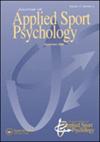Exploring runners’ perspectives of potential strategies for flow interventions
IF 3.2
2区 心理学
Q2 HOSPITALITY, LEISURE, SPORT & TOURISM
引用次数: 3
Abstract
Abstract Flow is an intrinsically rewarding psychological state characterized by effortlessness, absorption, and feelings of automaticity, that is associated with numerous beneficial outcomes for athletes (e.g., performance, motivation, wellbeing). Many studies have attempted to induce flow through interventions, however, with minimal success, perhaps due to a lack of consultation with end-users regarding appropriate strategies. Therefore, this study sought to examine runners’ perspectives on potential strategies that should be considered during the development of flow interventions. Fourteen athletes (M age = 32.71; SD = 7.22) participated in semi-structured interviews. Data were analyzed using reflexive thematic analysis, which generated four categories with themes relating to factors that cause and inhibit the occurrence of flow within each category. Specifically, these runners suggested that flow interventions should: (i) create an exploratory or novel context; (ii) set open-ended goals; (iii) provide feedback that exceeds expectations; and (iv) ensure that attention is process-focused or directed toward pleasant aspects of the run. Moreover, runners suggested that certain strategies may inhibit the experience of flow: (i) evaluative contexts; (ii) setting specific goals; (iii) delivering quantitative feedback; and (iv) focusing on disruptive stimuli and bodily sensations. The findings of this study provide researchers with detailed end-user perspectives of strategies that may inform the development of flow interventions, and in turn, increase the likelihood of their efficacy. Lay summary: The immersive, motivating, and effortless psychological state of “flow” has numerous benefits for athletes and exercisers (e.g., improved performance and wellbeing). This study interviewed runners to understand their perspectives on factors involved in the occurrence of flow, and how they relate to potential intervention strategies. Through the exploration of these factors, the findings indicate that those developing flow interventions should consider lowering the perceived demands and expectations of the activity, open-ended goal setting strategies, the delivery of feedback implying performance is better than expected, and to direct attention toward process-related distractions. IMPLICATIONS FOR PRACTICE Runners indicated that various psychological contexts, goal setting strategies, feedback, and attentional focus can cause or inhibit flow states. Athletes, coaches, and practitioners should consider creating novelty or removing specific performance demands (e.g., running a new route, terrain, or distance that is devoid of clear expectations), setting open-ended goals, avoiding quantitative feedback, and focusing on process-related stimuli when attempting to experience flow during sport and exercise. Consulting with end-users during intervention development increases the likelihood of their efficacy. Hence, this study provides a range of considerations to improve flow intervention development and subsequent efficacy.探索跑步者对流干预潜在策略的看法
心流是一种本质上有益的心理状态,其特征是不费力、专注和自动性,这与运动员的许多有益结果(例如,表现、动机、健康)有关。许多研究都试图通过干预措施来诱导流动,然而,由于缺乏与最终用户就适当的策略进行协商,成功的可能性很小。因此,本研究旨在研究跑步者对流干预发展过程中应考虑的潜在策略的看法。14名运动员(年龄32.71;SD = 7.22)参加了半结构化访谈。使用反身性主题分析对数据进行分析,生成了四个类别,每个类别中与导致和抑制流动发生的因素相关的主题。具体来说,这些跑步者认为心流干预应该:(i)创造一个探索性的或新颖的环境;(ii)设定开放式目标;(iii)提供超出预期的反馈;(iv)确保注意力集中在过程上或指向跑步中令人愉快的方面。此外,跑步者认为某些策略可能会抑制心流体验:(i)评估情境;(二)设定具体目标;(iii)提供定量反馈;(四)专注于破坏性刺激和身体感觉。本研究的发现为研究人员提供了详细的终端用户视角的策略,这可能会为流动干预的发展提供信息,反过来,增加其有效性的可能性。总结:“心流”的沉浸式、激励式和轻松的心理状态对运动员和锻炼者有很多好处(例如,提高表现和健康)。本研究采访了跑步者,以了解他们对心流发生的因素的看法,以及这些因素与潜在干预策略的关系。通过对这些因素的探索,研究结果表明,那些制定心流干预措施的人应该考虑降低对活动的感知需求和期望,开放式目标设定策略,提供暗示表现优于预期的反馈,并将注意力引导到与过程相关的干扰上。对练习跑步者的启示表明,各种心理环境、目标设定策略、反馈和注意力集中都可以引起或抑制心流状态。运动员、教练和实践者应该考虑创造新颖性或去除特定的表现要求(例如,跑一条没有明确期望的新路线、地形或距离),设定开放式目标,避免定量反馈,并在运动和锻炼中尝试体验心流时关注与过程相关的刺激。在干预措施制定期间与最终用户进行咨询,可提高干预措施发挥功效的可能性。因此,本研究为改善流动干预的发展和后续疗效提供了一系列考虑。
本文章由计算机程序翻译,如有差异,请以英文原文为准。
求助全文
约1分钟内获得全文
求助全文
来源期刊
CiteScore
6.90
自引率
9.40%
发文量
39
审稿时长
>12 weeks
期刊介绍:
The Journal of Applied Sport Psychology (JASP) is a refereed journal designed to significantly advance thought, theory, and research on applied aspects of sport and exercise psychology. Submissions such as experimental studies, qualitative research, correlational studies, case studies, position papers, critical reviews, theoretical developments specific to applied research conducted in sport and/or exercise settings, or having significant applied implications to sport and exercise, are appropriate content for the JASP. Please see the recent Editorial for further details on the aims and scope of the journal. JASP is a non-proprietary journal that is an official publication of the Association for Applied Sport Psychology (AASP). The purpose of AASP is to promote the development of psychological theory, research, and intervention strategies in sport and exercise psychology. The Journal is a direct benefit of membership in AASP and is received by its student and professional members. The publisher of the JASP is Taylor and Francis, Inc. of Philadelphia, PA.

 求助内容:
求助内容: 应助结果提醒方式:
应助结果提醒方式:


